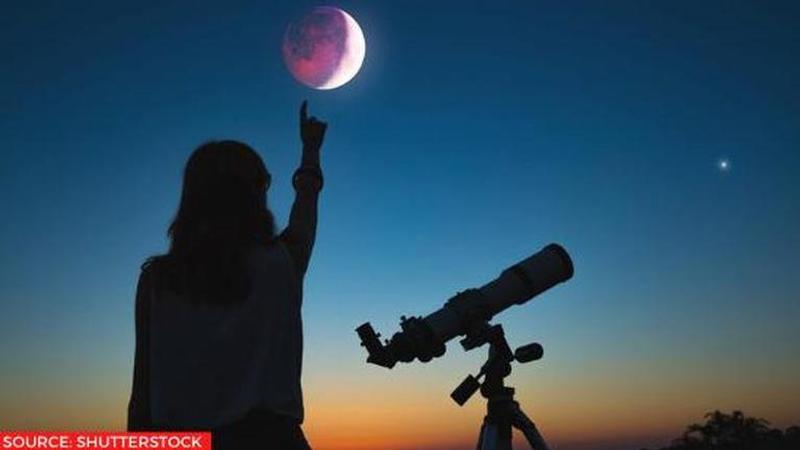Published 14:01 IST, November 30th 2020
What is Lunar Eclipse? Here are the penumbral lunar eclipse timings in India
The Penumbral Lunar Eclipse which will be the last Lunar Eclipse of 2020 is right around the corner. Find out what is Lunar Eclipse and what is its significance

A recent report in Earth sky has revealed that the penumbral Lunar Eclipse 2020 is all set to occur on November 29 and 30. Today’s lunar eclipse is going to be the last one out of all the eclipses in 2020. This year saw four of the most stunning lunar eclipses of the decade. The umbral magnitude of this lunar eclipse is -0.262 and its penumbral magnitude is 0.828. Read on to know, "What is Lunar Eclipse?”
What is Lunar Eclipse?
A report in Earth sky reveals that lunar eclipses occur when Earth's shadow blocks the sun's light, which normally reflects off the moon. There are three types of lunar eclipses, total, partial and penumbral, with the most dramatic being a total lunar eclipse. During a total Lunar Eclipse, the Earth’s shadow completely covers the moon.
The last lunar eclipse of the year is the penumbral lunar eclipse which will happen on November, 29 & 30, 2020. Also, known as Chandra Grahan in India, the eclipse will be clearly visible to the northern and eastern states of India. A penumbral lunar eclipse is one of the most common types and it occurs when the Sun, Earth, and the Moon are imperfectly aligned. The Earth blocks some of the Sun's light from directly reaching the Moon's surface, thus, covering all or part of the Moon with the outer part of its shadow, also known as the penumbra.
However, this isn’t the case during a total eclipse of the moon, the inner part of Earth’s shadow, known as the umbra, falls on the moon’s face. At the time of mid-eclipse, the entire moon is in shadow, hence, it appears as blood red. While during a partial eclipse, the umbra takes a bite out of only a fraction of the moon.
Significance of Chandra Grahan
Surprisingly, this year's Chandra Grahan coincides with Kartik Purnima and Guru Nanak Jayanti, both of which will be observed on November 30. The last lunar eclipse is also called Upachaya in Sanskrit, which means that it will not be visible to the naked eyes. The last Lunar Eclipse 2020 will be visible from Asia, most of Europe, Australia, North America, South America, Pacific Ocean, Atlantic Ocean, Arctic Ocean. Countries in the Southern Hemisphere won’t be able to witness the celestial event. Throughout history, Lunar Eclipses have not only inspired awe but also a large degree of fear among people.
Chandra Grahan 2020: Lunar Eclipse 2020 timing in India
- Chandra Grahan 2020 date: November 30
- Chandra Grahan time: First contact with the penumbra at 01:04 PM.
- Maximum eclipse: 03:13 PM
- Last contact with the penumbra: 05:22 PM
- Duration of the penumbral phase: 04 hours 18 minutes 11 seconds
- The magnitude of the penumbral eclipse: 0.82
Updated 14:01 IST, November 30th 2020



